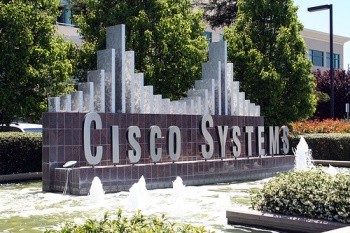Cisco, together with local business partners, has expressed plans to invest more than $10 billion in China over the next several years, the U.S. network equipment maker announced on June 17, Wednesday.
Cisco, the world's biggest maker of switching equipment and routers, made the announcement following high-level meetings between its top executives and Chinese Vice Premier Wang Yang, together with other government agency leaders.
In a statement issued by Cisco, the company said that it had signed a Memorandum of Understanding (MoU) with the National Development and Reform Commission, China's state planner, to expand investment.
Cisco's planned investment was outlined in the statement, but no details were given on the timeline or specific spending to carry out the plan.
The Silicon Valley firm said that the MoU will be used to source fund for innovation, research and development, equity investment and job creation.
The U.S. company also signed another MoU with the Association of Universities (Colleges) of Applied Science (AUAS) to provide advanced technical training to information and communications engineers.
The company said that as an investment, it will provide a four-year training program for network engineers in 100 universities and colleges of applied science recommended by AUAS.
Cisco is taking advantage of the various initiatives being promoted by the Chinese government, including "China Manufacturing 2025," "Internet Plus," and the strategy to deliver more services as cloud-based Internet products.
But pressure on foreign technology firms has grown, as the Chinese government moved to promote domestic technology suppliers which they needed to safeguard state secrets and data.
Reuters reported that Chinese authorities have dropped Cisco from U.S. technology firms in the state procurement lists earlier this year.
Huawei Technologies and Cisco have been rivals for a decade and their political ties with their respective governments have become issues of concern for both companies.
John Chambers, Cisco's chairman and chief executive, admitted in 2013 that security controversies had hindered the company's moves to expand in China.



























